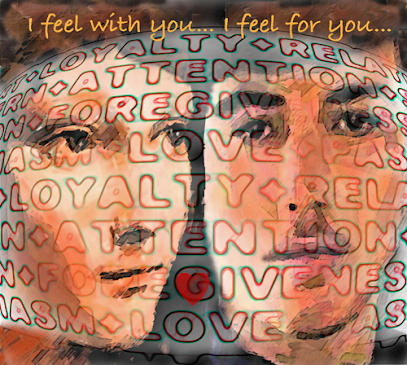Kant’s Political Philosophy
Immanuel Kant’s political philosophy, though often overshadowed by his epistemological work, profoundly shaped modern political thought. Despite Hannah Arendt’s claim that Kant never wrote a political philosophy, texts like Towards Perpetual Peace (1795) and The Metaphysics of Morals (1797) reveal his systematic engagement with governance, justice, and human freedom. Kant’s vision centered on a “perfect constitution” guided by reason, emphasizing republican ideals where laws derive from collective will rather than authoritarian decrees. His famous advocacy for checks on power—asserting “the legislator cannot be the ruler”—challenged Prussia’s absolutist norms, underscoring his courage as a public intellectual.
Kant’s ethical framework, anchored in the Categorical Imperative, diverged sharply from later thinkers like John Rawls. While Rawls’ A Theory of Justice (1971) relied on self-interested hypotheticals (e.g., the “veil of ignorance”), Kant insisted morality must stem from duty, not consequences. He rejected “hypothetical imperatives” that condition ethics on rewards, arguing true morality lies in universal principles: “Act only according to maxims that could become laws of nature.” This rigor contrasted with Utilitarian approaches, yet his ideas on maximizing individual freedom (“each freedom coexisting with others”) prefigured John Stuart Mill’s On Liberty by decades.
Central to Kant’s political theory was his blueprint for a republican constitution, which he deemed the only system aligning with reason and the “original contract.” He envisioned a society where competing self-interests, regulated by law, drive progress—a concept he termed “unsocial sociability.” Unlike Rousseau, who romanticized pre-social harmony, Kant saw human vanity and ambition as catalysts for cultural advancement. His metaphor of trees in a forest—growing straight only through competition for light—captured this tension between individualism and collective order.
Kant’s Critique of Judgement (1790), while exploring aesthetics, also informed his political vision. By linking human perception to a “purposiveness of nature,” he argued societies inevitably seek rational structures, culminating in just constitutions. His positivist leanings led him to identify social “laws,” such as the democratic peace theory: nations with citizen-led governance, he posited, avoid war because people bear its costs. Historical examples, like Australia’s WWI conscription referendums, later validated this insight.
Despite his idealism, Kant acknowledged human imperfection, famously declaring, “Out of the crooked timber of humanity, no straight thing was ever made.” He rejected utopianism, advocating instead for incremental progress through legal frameworks that channel selfishness into societal benefit. His realist stance balanced hope for reason’s triumph with skepticism about human nature, urging perpetual critique of power to counter “arrogant pretensions of truth”.
Kant’s legacy lies in bridging abstract philosophy with pragmatic governance. By framing freedom as both an individual right and a collective responsibility, he laid groundwork for liberal democracies. His insistence on transparent, reason-based institutions remains a bulwark against authoritarianism, affirming his enduring relevance in political theory.
WORDS TO BE NOTED-
Coercive
Meaning: Using force or threats to compel action.-
Absolutist
Meaning: Relating to a system of unlimited centralized power. -
Maxims
Meaning: Foundational principles or general truths guiding behavior. -
Phenomena
Meaning: Observable events or empirical realities. -
Legislator
Meaning: A lawmaking authority or body. -
Conscription
Meaning: Mandatory military enlistment. -
Cannon-fodder
Meaning: Soldiers treated as expendable in war. -
Incremental
Meaning: Progressing gradually through small steps. -
Autonomy
Meaning: Self-governance based on rational principles. -
Scrutiny
Meaning: Rigorous critical examination.
PARA SUMMARY -
Immanuel Kant, a famous philosopher, believed politics should be guided by reason and ethics. He argued that the best society has a “perfect constitution” where laws protect everyone’s freedom while maintaining order. Unlike Plato, who imagined unrealistic utopias, Kant focused on practical systems. He supported a republican government where citizens help make laws, and leaders’ power is limited to prevent abuse.
Kant’s Categorical Imperative—a key idea—states that actions are moral only if they could work as universal rules. For example, lying is wrong because if everyone lied, trust would collapse. He disagreed with thinkers like John Rawls, who based fairness on “what if I were poor?” scenarios. For Kant, ethics must come from duty, not self-interest.
He also believed human nature mixes selfishness and cooperation. He called this “unsocial sociability”—like trees competing for sunlight but growing stronger together. Laws, he said, should channel this tension into progress.
Kant thought democracies avoid war because citizens (who suffer in wars) would vote against it. Australia’s WWI referendums, where people rejected forced military service, proved his point.
Though he hoped for a better world, Kant knew perfection was impossible, famously saying, “Nothing straight comes from crooked timber.” Still, he trusted reason and fair laws to improve society step-by-step. His ideas on freedom, ethics, and balanced power remain pillars of modern democracies.
SOURCE- PHILOSOPHY NOW
WORDS- 600
FLESCH-KINCAID- 15




Comments
Post a Comment